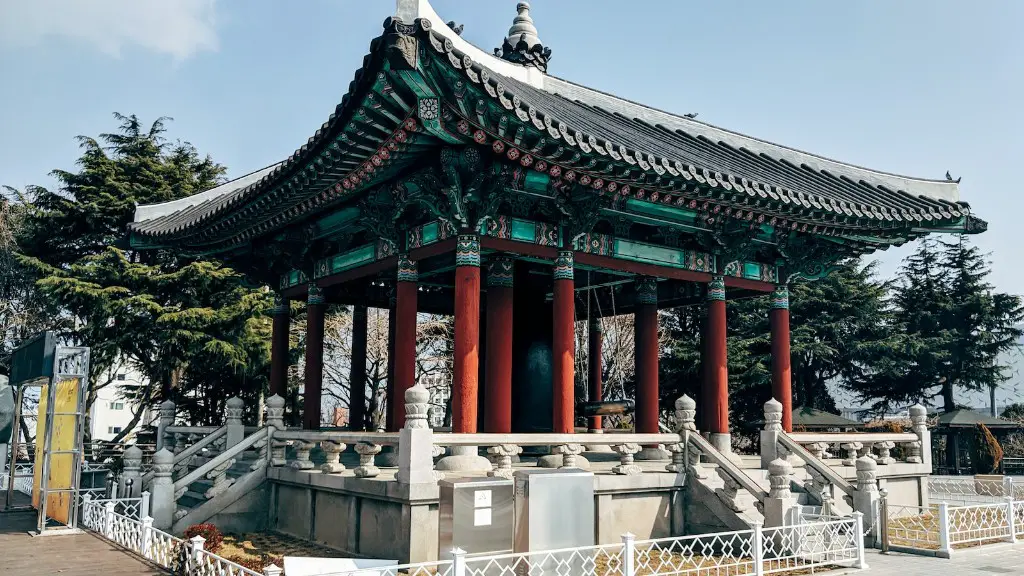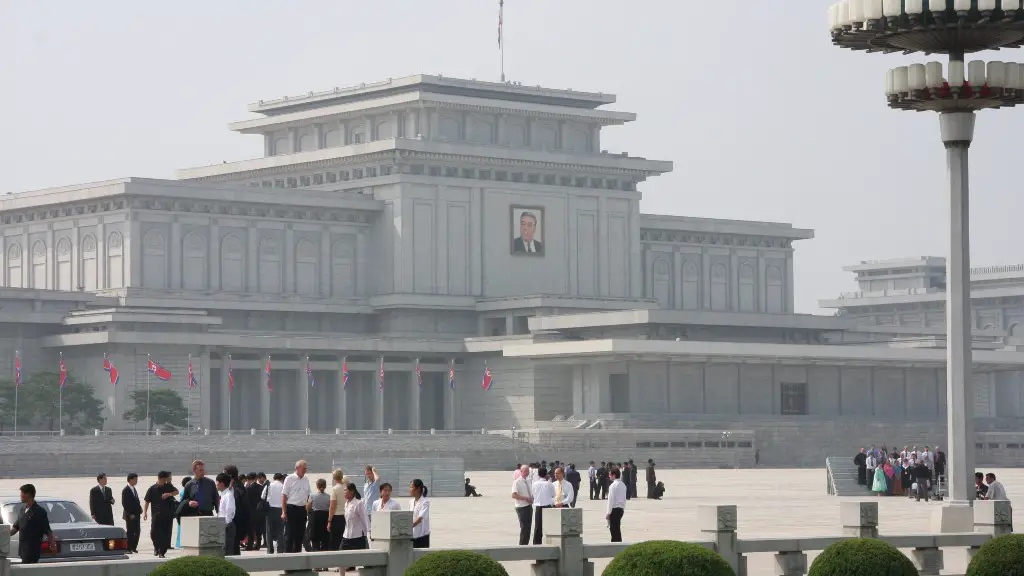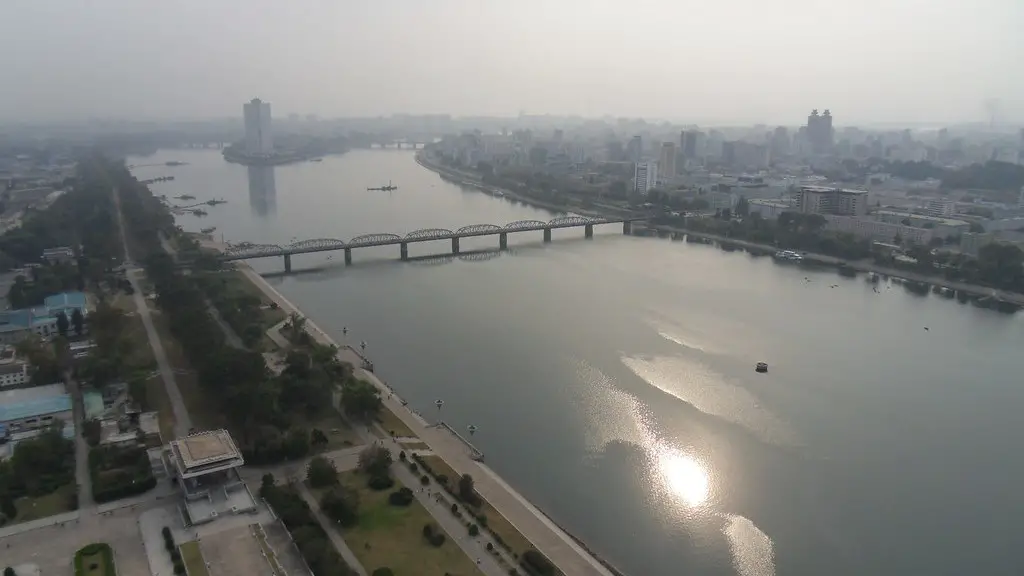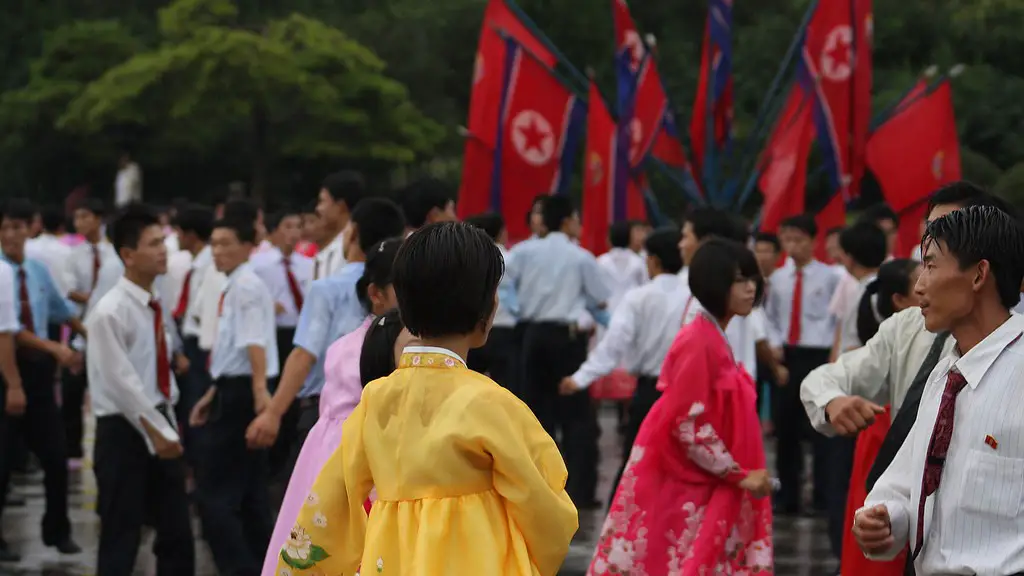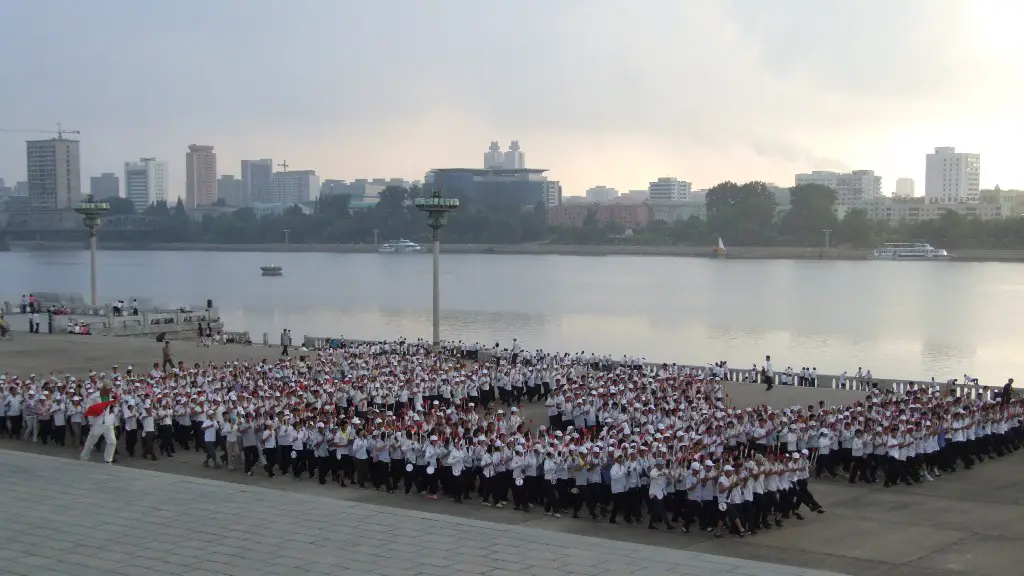With an isolationist policy and little to no foreign trade, it is difficult to tell how North Korea’s economy actually works. It is believed that the economy is primarily state-run, with North Korea’s few industries being owned by the government. The country does not allow much foreign investment, so most of the country’s infrastructure and industry is old and outdated. It is believed that the country heavily subsidizes its citizens, providing them with basic needs like food and housing. There is very little information available on North Korea’s economy, so it’s hard to say how sustainable it actually is.
The economy of North Korea is a centrally planned system, where the government controls all major economic activities. North Korea’s Gross Domestic Product (GDP) per capita is one of the lowest in the world. The majority of the population lives in poverty. The country faces chronic food shortages and relies heavily on international aid to feed its people. The North Korean government has been unable to reform the economy and improve living standards. The country’s infrastructure is also in a state of disrepair. These factors have all contributed to the sustained economic decline of North Korea.
Does North Korea have a good economy?
North Korea’s economic freedom score is 30, making its economy the 177th freest in the 2022 Index. North Korea is ranked 39th among 39 countries in the Asia–Pacific region, and its overall score is below the regional and world averages. North Korea’s dismal economic freedom score is due to its lack of legal protections for private property, high levels of corruption, and restrictions on both trade and investment.
In a command economy, the central government controls the economy and makes all decisions regarding the production and distribution of goods. This type of economy is typically found in communist countries, like North Korea.
Why is Korea successful economically
The South Korean education system is largely responsible for the country’s high technology boom and economic development. South Korea began to adapt an export-oriented economic strategy to fuel its economy. The education system in South Korea is highly competitive, with students vying for spots in the best schools. The curriculum is focused on math and science, and students are expected to put in long hours of study. This has resulted in a highly educated and motivated populace, which has helped spur the country’s economic development.
North Korea’s economy is in a dire state. The country’s industrial capital stock is nearly beyond repair, due to years of underinvestment, shortages of spare parts, and poor maintenance. This has led to chronic economic problems, such as high levels of unemployment and inflation. The government has been unwilling or unable to address these issues, and the situation is unlikely to improve in the near future.
Does North Korea pay taxes?
Though North Korea does not have domestic taxes, the North Korean government still collects revenue from its citizens in the form of hidden taxation through various sales taxes. This hidden taxation can be a burden on citizens, as it can make essential goods and services more expensive. It is important to be aware of these hidden taxes when living in or visiting North Korea.
North Korea is in a lot of trouble. The COVID-19 pandemic has hit them hard, and their self-imposed isolation has made things even worse. Crop failures have also taken a toll, and sanctions have made it difficult for them to get the help they need. Kim Jong Un himself has acknowledged the dire state of the economy, and it’s clear that things are not going to improve any time soon.
Why is North Korea in poverty?
In 2021, there were reports of widespread starvation in North Korea. North Korea has a command economy, which is common among communist nations. The government has complete control over all monetary exchanges, causing the economy to remain stagnant due to a lack of competition between businesses.
The North Korean constitution contains clauses that guarantee the freedoms of speech and assembly. However, in practice, other clauses take precedence, including the requirement that citizens follow a socialist way of life. This means that people in North Korea do not have the same level of freedom of expression and assembly as people in other countries.
How does North Korea make money
The North Korean garment industry is the most successful export industry in the country. Production is done by North Korean firms for foreign partners, by Chinese firms operating in North Korea, or by North Korean workers working in foreign factories. The industry has been successful due to the low cost of labor in North Korea and the high quality of the products produced.
South Korea’s economy heavily relies on foreign trade. South Korea is not only an export-driven country, but it also imports goods from China, the USA, and Japan. In fact, 70% of South Korea’s GDP is based on world trade, which includes exports and imports, which are forecasted to increase in the upcoming years. South Korea’s main exports include semiconductors, automobiles, ships, and steel. The main imports include oil, gas, and machinery.
How did Korea become rich so fast?
South Korea is one of the richest economies in the world thanks to its thriving shipbuilding, car manufacturing, and technology industries. South Korea’s GDP per capita has exploded from 79 dollars in the 1960s to 34,758 dollars thanks to these key industries. South Korea is now the largest shipbuilder in the world and the third largest car manufacturer, making it a major global player in both industries. Additionally, South Korea’s technology sector is a major rival to Silicon Valley and Tokyo, making the country a major hub for cutting-edge innovation. Thanks to all of these factors, South Korea is an economic powerhouse with a bright future.
The major difference between North Korea and South Korea economies is that North Korea’s economy is isolated, closed and tightly controlled by the government, while South Korea’s economy is one of the world’s most advanced and productive. South Korea’s economy is mostly driven by the private sector, while North Korea’s economy is mostly state-controlled.
Does North Korea have a lot of poverty
The Democratic People’s Republic of Korea, or North Korea, is a country with a high poverty rate. Sixty percent of its population lives in poverty, according to estimates. The economic structure of North Korea and its lack of participation in the world economy are two of the main reasons for this. North Korea’s economy is heavily centrally planned, and the country is cut off from most international trade. This isolation has resulted in a lack of development and a decline in living standards for North Koreans. In recent years, there have been some efforts to improve the economic situation in North Korea, but much more needs to be done to reduce poverty and improve living conditions for the people of North Korea.
Both South and North Korea have experienced GDP growth in the past decade, with South Korea’s GDP growth being significantly higher than North Korea’s. South Korea’s nominal GDP is now around 57 times greater than North Korea’s. The economic divide between the two countries is large and has been growing in recent years.
Is there free healthcare in North Korea?
There is no denying that the right to free medical treatment is a fundamental human right. However, it is difficult to assess how well this right is implemented in North Korea due to the lack of data on the costs of healthcare in the country. It is possible that the workers, farmers, and working intellectuals are not receiving the same level of care as the rest of the citizens, but without more information it is difficult to say for sure.
You may be surprised to learn that North Korea is not a dry country! There is no shortage of booze, and no limit on consumption. It could even be considered a national pastime – much like life in South Korea, China and much of East Asia.
The main drink of choice is soju. Soju is a clear spirit made from rice, wheat or barley. It is usually around 20% alcohol, but can be as high as 40%. It is typically served neat, but can also be mixed with water or fruit juice.
So, if you’re ever in North Korea, don’t hesitate to belly up to the bar and enjoy some soju!
Who does North Korea owe money to
North Korea still owes 22 billion Swedish kronor (234 million euros) to Sweden from these imports. Out of all countries, the North Korean debt to Sweden is the largest, followed by Iraq whose debt is a billion kronor smaller.
Since February 2013, foreigners have been able to access the Internet using the 3G telecommunications network provided by Koryolink. However, permission to access the Internet remains tightly restricted by the North Korean government. The majority of North Korea’s Internet traffic is routed through China, due to the country’s close relationship with China.
Warp Up
The Democratic People’s Republic of Korea (DPRK) has a command economy which is largely based on agriculture, mining, manufacturing, and military spending.Trade is also limited due to international sanctions. The country does not allow foreign investors and most of the industries are state-owned. The government centrally plans the economy and controls all prices.The country has very little resources and must rely on foreign aid to sustain its economy.
North Korea’s economy is sustained through a combination of domestic and international trade. The country is rich in minerals and other natural resources, which are exported to other countries in exchange for hard currency. North Korea also relies on foreign aid to support its economy.
